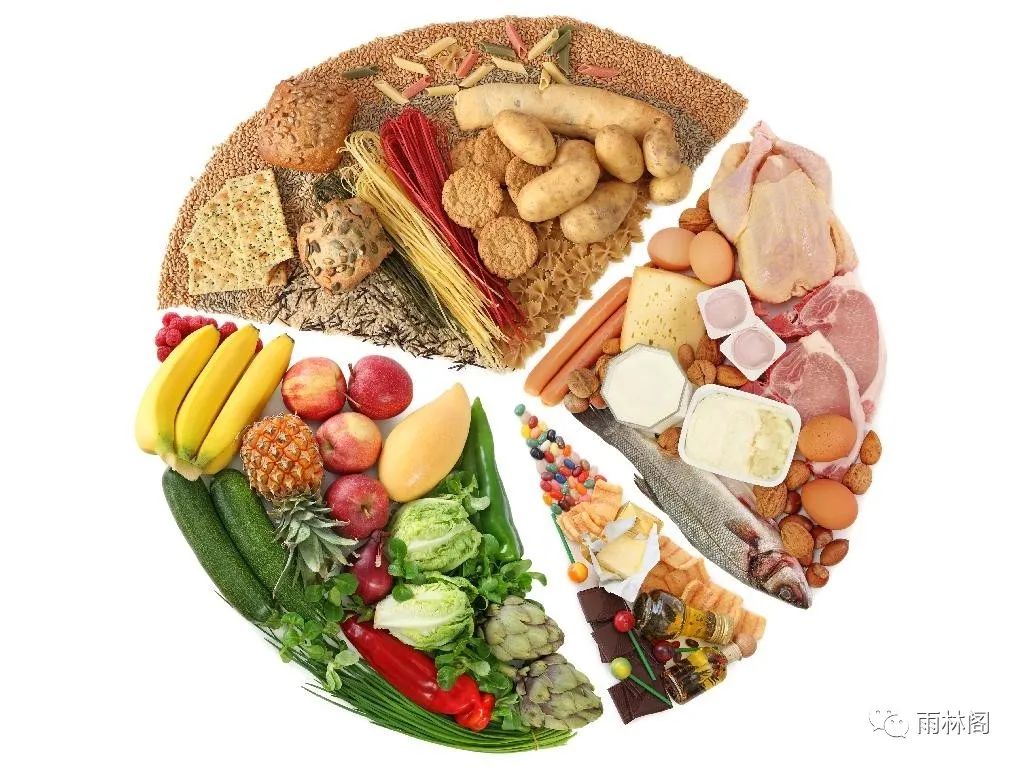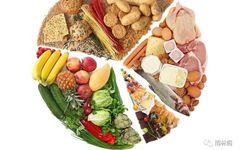
This article is summarized and organized based on the “Lecture Notes on Basic Theories of Traditional Chinese Medicine” by Li Dexin, published by Renwei Press.1. Dietary ImbalanceDietary imbalance refers to irregular eating habits, unclean food, and excessive preferences in diet, which are pathogenic factors that deviate from normal dietary practices.Dietary imbalance can lead to the occurrence of diseases and is one of the main pathogenic factors of internal injuries.Diet is a fundamental condition for health, and the essence derived from food is crucial for the generation of Qi and blood, maintaining human growth, development, and various physiological functions, ensuring life and health.Normal eating is one of the main sources of Qi and blood that sustain life activities, but dietary imbalance is often a cause of many diseases.Food primarily relies on the spleen and stomach for digestion and absorption; if dietary imbalance occurs, it can first damage the spleen and stomach, leading to dysfunction in their ability to transform and transport, resulting in digestive disorders;secondly, it can generate heat, phlegm, and dampness, causing various pathological changes, becoming an important reason for the onset of diseases.

Types of Dietary Imbalance1. Irregular EatingEating should be regulated; consuming food in appropriate amounts and at regular times is referred to as having a regulated diet. Irregular eating refers to the inability to control food intake, significantly below or above the suitable amount for oneself, including excessive hunger and overeating.(1) Abnormal Hunger and Satiety: Eating should be in moderation; both excessive hunger and overeating can lead to diseases.Significantly below the appropriate amount is termed excessive hunger;significantly above the appropriate amount is termed overeating.Excessive hunger leads to insufficient intake, lack of transformation, ultimately resulting in deficiency of Qi and blood.Insufficient Qi and blood can cause emaciation, weakened vital energy, reduced resistance, and susceptibility to other diseases.Conversely, binge eating and overeating, exceeding the digestive and absorptive capacity of the spleen and stomach, can lead to food stagnation, causing abdominal distension, acid regurgitation, loss of appetite, vomiting, and diarrhea, which are diseases caused by food harming the spleen and stomach, hence the saying, “Excessive eating harms the intestines and stomach.”Abnormal hunger and satiety are particularly common in children, as their spleen and stomach are weaker than adults, and prolonged food stagnation can lead to heat transformation;injury from cold and dampness can also lead to phlegm accumulation.In infants and young children, prolonged food stagnation can lead to symptoms such as heat in the hands and feet, irritability, abdominal distension, and pale complexion, known as “Gan Ji” (accumulation disorder).In adults, prolonged overeating can obstruct the flow of Qi and blood in the intestines and stomach, leading to diarrhea, blood in stools, hemorrhoids, etc.Overconsumption of rich and fatty foods can easily generate internal heat, even causing abscesses and toxic sores.In summary, one should not eat excessively when extremely hungry, nor should one overeat; one should not drink excessively when extremely thirsty, nor should one drink too much.Excessive eating can lead to accumulation; excessive drinking can lead to dampness and phlegm accumulation.Moreover, during the course of illness, irregular eating can alter the condition, hence the saying “food recurrence”; for instance, in febrile diseases, when the illness is initially resolved, if the spleen and stomach are still weak, excessive eating or consuming indigestible foods can often lead to food stagnation transforming into heat, combining with residual heat, causing the pathogenic heat to linger and resulting in disease recurrence or prolonged duration.(2) Eating at Irregular Times: Eating at fixed times and in a regular manner can ensure that the digestive and absorptive functions proceed rhythmically, allowing the spleen and stomach to coordinate, with a balance of tension and relaxation, and the transformation of food essence to be orderly and distributed throughout the body.Since ancient times, there has been a saying, “Breakfast should be hearty, lunch should be filling, and dinner should be light.” If eating occurs at irregular times, it can also damage the spleen and stomach, leading to other diseases.2. Dietary PreferencesDietary preferences refer to excessive consumption of foods that are too cold or too hot, an imbalance in the five flavors (sour, bitter, sweet, spicy, salty), and excessive alcohol consumption.A reasonable dietary structure, with balanced flavors and moderate temperatures, is essential for the body to obtain various necessary nutrients.If dietary preferences or improper dietary structures occur, or if food is excessively cold or hot, or if there is a preference for certain flavors, it can lead to Yin-Yang imbalance or nutritional deficiencies, resulting in diseases.(1) Preference for Certain Types: A reasonable combination of food types and a balanced dietary structure are necessary to obtain sufficient nutrition to meet the needs of life activities.The dietary structure should include grains, meat, fruits, and vegetables, with grains as the main component, meat as a secondary component, vegetables as a supplement, and fruits as an aid, all reasonably combined according to needs, which is beneficial for health.If the structure is inappropriate, the combination is unsuitable, and there are preferences, it can lead to flavor bias and organ dysfunction.For example, excessive preference for fermented products can lead to fluid accumulation;excessive preference for fruits and dairy can lead to internal dampness, resulting in swelling and diarrhea.(2) Preference for Cold or Hot Foods: Foods should be moderately cold or warm; otherwise, excessive consumption of raw and cold foods can damage the Yang Qi of the spleen and stomach, leading to internal cold and dampness, resulting in abdominal pain and diarrhea.Excessive consumption of spicy and warming foods can cause heat accumulation in the stomach and intestines, leading to thirst, abdominal distension and pain, constipation, or even hemorrhoids.(3) Preference for Certain Flavors: The spirit, Qi, and blood of a person are nourished by the five flavors, and each flavor corresponds to a specific organ; for instance, sour corresponds to the liver, bitter to the heart, sweet to the spleen, spicy to the lungs, and salty to the kidneys.If one has a long-term preference for a certain food, it can lead to the overactivity or underactivity of that organ’s function, and over time, it can cause damage to other organs due to the interrelations of the five organs.For example, excessive consumption of salty foods can lead to blood stagnation and a loss of luster in the complexion;excessive consumption of bitter foods can cause dry skin and hair loss;excessive consumption of spicy foods can lead to tightness in the tendons and brittle nails;excessive consumption of sour foods can cause thickened and wrinkled skin, dry lips, and peeling;excessive consumption of sweet foods can lead to bone pain and hair loss.Excessive preferences can lead to nutritional deficiencies, lacking certain necessary nutrients, which can harm the organs and lead to diseases. For instance, beriberi, night blindness, and goiter can all result from flavor preferences.Therefore, the five flavors in diet should be appropriate, and one should avoid preferences in daily eating; during illness, attention should be paid to dietary restrictions, as food and disease changes are interrelated, which can assist in treatment and promote recovery from diseases.Conversely, if dietary habits are not observed, the disease may worsen; only by “carefully harmonizing the five flavors” can one “prolong life.”Additionally, pica is a difficult-to-treat psychological disorder.(3) Unclean Food: Unclean food refers to consuming unclean, unsanitary, spoiled, or toxic substances, which can lead to various gastrointestinal diseases, presenting symptoms such as abdominal pain, vomiting, diarrhea, and dysentery; or can cause parasitic diseases, such as ascariasis, pinworm infection, and threadworm infection, with clinical manifestations including abdominal pain, pica, and emaciation.If ascaris invade the bile duct, it can cause severe upper abdominal pain, intermittent episodes, vomiting of worms, and cold limbs.If spoiled or toxic food is consumed, it can lead to food poisoning, often presenting with abdominal pain and diarrhea, and in severe cases, can lead to coma or death.Dietary imbalance has become a risk factor for various difficult-to-treat diseases in modern civilized society.For example, metabolic syndrome, which includes hypertension, hyperglycemia or abnormal glucose tolerance, hyperinsulinemia, hypertriglyceridemia, and low high-density lipoprotein, known as the “four highs and one low” phenomenon, as well as obesity, are all related to poor dietary habits.2. Imbalance of Work and RestImbalance of work and rest refers to both excessive labor and excessive leisure.Imbalance of work and rest includesexcessive laborandexcessive leisuretwo aspects.Normal labor and physical exercise help promote the circulation of Qi and blood and enhance physical fitness.Necessary rest can eliminate fatigue and restore physical and mental strength, and will not cause illness.Only prolonged excessive labor or excessive leisure, with complete lack of work or exercise, can become pathogenic factors leading to illness.

Types of Imbalance of Work and Rest1. OverworkOverwork refers to excessive physical strain, including excessive physical labor, mental strain, and sexual activity.(1) Excessive Physical Labor: Excessive physical labor refers to prolonged physical activities that exceed one’s capacity.Excessive physical labor can damage internal organ functions, leading to Qi deficiency, which may present as shortness of breath, fatigue, reluctance to speak, mental exhaustion, and emaciation, known as “exhaustion of Qi due to overwork.” Excessive physical labor is a significant cause of bodily fatigue.(2) Excessive Mental Strain: This refers to sustained intense mental activities that exceed the body’s adaptive capacity, which can damage the heart and spleen, and may even affect other organs, being a primary cause of mental or neurological fatigue.Excessive mental strain can deplete heart blood, damage spleen Qi, leading to symptoms such as palpitations, forgetfulness, insomnia, vivid dreams, poor appetite, abdominal distension, and loose stools, and may even deplete Qi and blood, weakening organ functions, leading to deficiency of vital energy, and eventually causing illness due to accumulated fatigue.(3) Excessive Sexual Activity: Excessive sexual activity, also known as sexual exhaustion, refers to overindulgence in sexual activity that depletes kidney essence.Normal sexual activity generally does not harm the body, but excessive sexual activity can deplete kidney essence, leading to symptoms such as soreness in the lower back and knees, dizziness, tinnitus, mental fatigue, or in men, nocturnal emissions, reduced sexual function, and even impotence.2. Excessive LeisureExcessive leisure refers to a lack of labor and exercise, causing Qi and blood circulation to become sluggish, leading to weak muscles and bones, sluggish spleen and stomach, physical weakness, mental fatigue, or obesity, and upon movement, symptoms such as palpitations, shortness of breath, and sweating may occur, and it can also lead to other diseases.

This public account regularly shares knowledge about Traditional Chinese Medicine; feel free to scan the code to follow!

